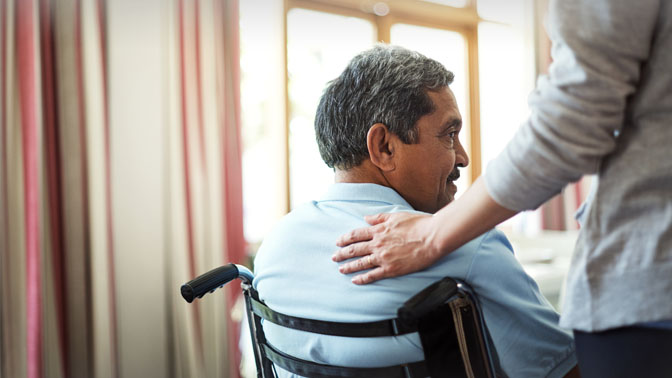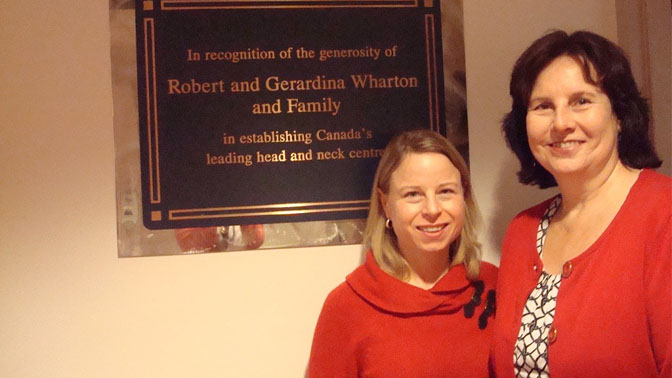
A cancer diagnosis can be devastating for an individual and their loved ones. Those with head and neck cancers (HNCs) however, can experience even more psychological distress. This is because these cancers often impede structures responsible for daily functions—i.e., those that enable us to see, speak, swallow, hear and breathe.
To provide special support for individuals with HNCs, a resource known as “prehab” was developed at the Princess Margaret Cancer Centre. Prehab is provided to patients shortly after radiation treatment begins. It is a class-based group intervention that is taught by a clinical nurse specialist, a speech language pathologist and a dietician.
While the program is optional, a recent study investigated whether prehab attendees experienced better treatment outcomes than non-attendees.
“We encourage both the patient and their families to attend prehab, where we discuss a range of topics that will empower them during the treatment course,” says Clinician Investigator Dr. Jolie Ringash, senior author of the study. “This includes educating participants on symptom management, swallowing, nutrition and pointing them towards key support resources.”
The study found that attendees of prehab had a better overall survival rate and experienced longer periods of remission (i.e., longer periods of time without cancer). Those who did not attend were more likely to experience a “rocky treatment course” compared to participants, such as interruptions in radiation therapy and unplanned insertion of a feeding tube.
“Our study also revealed that patients with more advanced disease were less likely to attend prehab,” explains Dr. Ringash. “Future goals include finding ways to improve participation by making the class more accessible by offering it online.”
This work was supported by the Princess Margaret Head & Neck Cancer Survivorship Programme and The Princess Margaret Cancer Foundation.
Malik NH, Maganti M, McQuestion M, Tjong MC, Keilty D, Monteiro E, Huang SH, Jang RWJ, Gomes A, Pun J, Ringash J. Pre-treatment psychoeducational intervention and outcomes in head and neck cancer patients undergoing radiotherapy. Support Care Cancer. 2020 Aug 6. doi: 10.1007/s00520-020-05627-2.

Dr. Jolie Ringash (left), senior author, and Ms. Maurene McQuestion (right), former co-Lead of the Head & Neck Survivorship Program at the Princess Margaret Cancer Centre. Ms. McQuestion retired in April 2020, but was a major factor in developing and launching the Prehab course, and is also an author on the paper.




